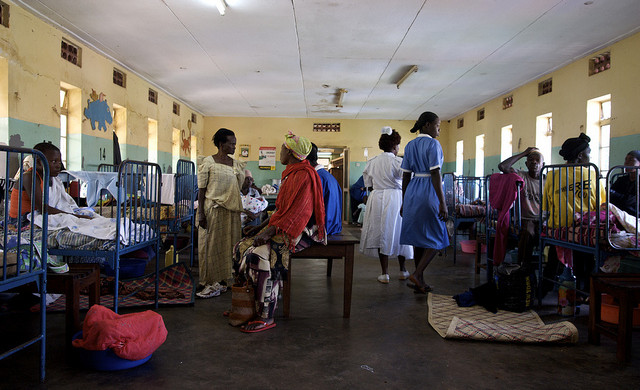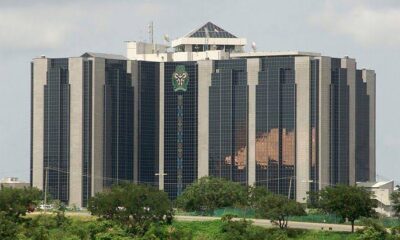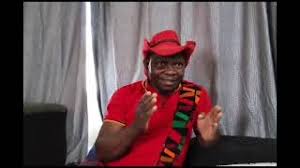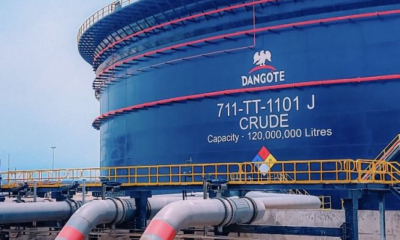Strictly Personal
If you are looking for a windfall invest in Uganda’s ‘death sector’ By Joachim Buwembo
Published
1 year agoon

In Uganda, we treasure death. So we invest more in death than in health. To understand how we cherish death more than health, you need to follow our insurers’ talk. Please note that I said how, not why, for I can’t explain the why.
Since Covid-19 came by three years ago and harassed us, you would have expected that we would all go out and acquire some medical cover fitting our income. But the latest we hear is that it is death-driving growth in Uganda’s insurance industry!
Our nation loves funerals. Unlike Kenyans, Ugandans won’t contribute to your hospital bill, but will rush to pay it if you die so your corpse can be released. Here, you may give all the help you can to a person nursing a dear one, but should you fail to turn up for the burial, they won’t forgive you. But they will praise the one who rushed to the graveside even if he ignored their pleas for help during illness.
Traditionally, a proud person here is threatened with questions like, “Who will bury you?” or “Will you bury yourself?”
Respectable funeral
Anyway, since Covid-19 happened, we remembered (as if we had forgotten) that we have to die one day and if there isn’t enough money in the family, the burial might not be beautiful and expensive enough. So we now make arrangements to ensure we get a respectable funeral when we pop.
Again, it is not new, only that formal, corporate insurance is just discovering it. But all Ugandan communities have been having their burial preparations for healthy people, but no financial arrangements to treat the sick not to die. We always had unregistered burial cooperative societies in every village, going under names like Friends Bury One Another or Friendship in Danger, and Let’s Help One Another. These societies are sex-segregated, with those for men usually sitting once a week around a pot of brew, collecting some money at every sitting.
These monies tend to grow too big sums and there are no reports of embezzlement by the responsible officials. Should a member lose a close relative, they step in and finance the funeral, vigils, and burial comprehensively, even giving a hefty envelope to console the bereaved.
The women’s burial groups meet over a cup of tea and collect money for similar purposes.
Undertaker services
What seems to be waking up corporate insurance funeral companies’ formalising and individualising these arrangements. For the past three or so years, undertakers have been promoting their services by advising/advertising that it is better to pay a small amount monthly to them so that should you or a family member die —they use kinder words, of course — you are assured of a respectable funeral. The insurers have seen the business and aren’t about to let the undertakers enjoy it alone.
This comes after investing in health insurance has generally “refused” to take off. The figures for Ugandans with individual health cover are just laughable. A sizeable number, maybe about half a million, have modest health cover paid by the employers as a fringe benefit, which you lose when you lose the job.
But, of the 45 million Ugandans, those who go out to buy their own health policy are in the lower five digits. You can’t blame us when government every year ritualistically tells us during budget time that it can’t afford universal health cover. We conclude that if government cannot afford it, then an individual can’t. So, if treatment is unaffordable and death is a certainty, then we’d rather invest in death. But our leaders in parliament beat us to it; they got about $20,000 provided for their own funeral each paid by the taxpayer, of course.
So, if you have or can borrow some cash, come invest it in the death business here, you won’t go wrong. Come up with beautiful coffins, elegant hearses or digital wreaths. How about flying hearses since 97 percent of our people die without ever boarding a plane (it was 99 percent before our girls started trafficking themselves to go die in the Middle East)!
Offering a helicopter to fly the dead with family members from the mortuary to the burial site would be a hit: –You’ll make profit charging $2,000 a burial flight in this small country and you will never get a rest flying dead fellows around. You just can’t go wrong investing in death stuff here. Thank me later.
Buwembo is a Kampala-based journalist. E-mail: buwembo@gmail.com
You may like
-


This Sudan war is too senseless; time we ended it, By Tee Ngugi
-


Air Peace, capitalism and national interest, By Dakuku Peterside
-


This is chaos, not governance, and we must stop it, By Tee Ngugi
-


Off we go again with public shows, humbug and clowning, By Jenerali Uliwengu
-


How patriarchy underpins gender violence today, By Tee Ngugi
-


Help! There’s a dangerous, secret plot to save the EAC from imminent death, By Charles Onyango-Obbo
Strictly Personal
This Sudan war is too senseless; time we ended it, By Tee Ngugi
Published
4 days agoon
April 28, 2024
Why are the Sudanese Armed Forces (SAF) and the paramilitary Rapid Support Forces (RPF) engaged in a vicious struggle? It is not that they have ideological, religious or cultural differences.
Not that people should fight because of these kinds of differences, but we live in a world where social constructions often lead to war and genocide. It is not that either side is fighting to protect democracy. Both sides were instruments of the rapacious dictatorship of Omar el-Bashir, who was overthrown in 2019.
Both are linked to the massacres in Darfur during Bashir’s rule that led to his indictment by the International Criminal Court for crimes against humanity. They both stood by as ordinary, unarmed people took to the streets and forced the removal of the Bashir regime.
None of these entities now fighting to the last Sudanese citizen has any moral authority or constitutional legitimacy to claim power. They both should have been disbanded or fundamentally reformed after the ouster of Bashir.
The SAF and the RSF are fighting to take over power and resources and continue the repression and plunder of the regime they had supported for so long. And, as you can see from news broadcasts, they are both well-versed in violence and plunder.
Since the fighting began in 2023, both sides have been accused of massacres that have left more than 30,000 people dead. Their fighting has displaced close to 10 million people. Their scramble for power has created Sudan’s worst hunger crisis in decades. Millions of refugees have fled into Chad, Ethiopia and South Sudan.
The three countries are dubious places of refuge. Chad is a poor country because of misrule. It also experiences jihadist violence. Ethiopia is still simmering with tensions after a deadly inter-ethnic war.
And South Sudan has never recovered from a deadly ethnic competition for power and resources. African refugees fleeing to countries from which refugees recently fled or continue to flee sums up Africa’s unending crisis of governance.
Africa will continue to suffer these kinds of power struggles, state failure and breakdown of constitutional order until we take strengthening and depersonalising our institutions as a life and death issue. These institutions anchor constitutional order and democratic process.
Strong independent institutions would ensure the continuity of the constitutional order after the president leaves office. As it is, presidents systematically weaken institutions by putting sycophants and incompetent morons in charge. Thus when he leaves office by way of death, ouster or retirement, there is institutional collapse leading to chaos, power struggles and violence. The African Union pretends crises such as the one in Sudan are unfortunate abnormally. However, they are systemic and predictable. Corrupt dictatorships end in chaos and violence.
Tee Ngugi is a Nairobi-based political commentator.
Strictly Personal
Air Peace, capitalism and national interest, By Dakuku Peterside
Published
2 weeks agoon
April 16, 2024
Nigerian corporate influence and that of the West continue to collide. The rationale is straightforward: whereas corporate activity in Europe and America is part of their larger local and foreign policy engagement, privately owned enterprises in Nigeria or commercial interests are not part of Nigeria’s foreign policy ecosystem, neither is there a strong culture of government support for privately owned enterprises’ expansion locally and internationally.
The relationship between Nigerian businesses and foreign policy is important to the national interest. When backing domestic Nigerian companies to compete on a worldwide scale, the government should see it as a lever to drive foreign policy, and national strategic interest, promote trade, enhance national security considerations, and minimize distortion in the domestic market as the foreign airlines were doing, boost GDP, create employment opportunities, and optimize corporate returns for the firms.
Admitted nations do not always interfere directly in their companies’ business and commercial dealings, and there are always exceptions. I can cite two areas of exception: military sales by companies because of their strategic implications and are, therefore, part of foreign and diplomatic policy and processes. The second is where the products or routes of a company have implications for foreign policy. Air Peace falls into the second category in the Lagos – London route.
Two events demonstrate an emerging trend that, if not checked, will disincentivize Nigerian firms from competing in the global marketplace. There are other notable examples, but I am using these two examples because they are very recent and ongoing, and they are typological representations of the need for Nigerian government backing and support for local companies that are playing in a very competitive international market dominated by big foreign companies whose governments are using all forms of foreign policies and diplomacy to support and sustain.
The first is Air Peace. It is the only Nigerian-owned aviation company playing globally and checkmating the dominance of foreign airlines. The most recent advance is the commencement of flights on the Lagos – London route. In Nigeria, foreign airlines are well-established and accustomed to a lack of rivalry, yet a free-market economy depends on the existence of competition. Nigeria has significantly larger airline profits per passenger than other comparable African nations. Insufficient competition has resulted in high ticket costs and poor service quality. It is precisely this jinx that Air Peace is attempting to break.
On March 30, 2024, Air Peace reciprocated the lopsided Bilateral Air Service Agreement, BASA, between Nigeria and the United Kingdom when the local airline began direct flight operations from Lagos to Gatwick Airport in London. This elicited several reactions from foreign airlines backed by their various sovereigns because of their strategic interest. A critical response is the commencement of a price war. Before the Air Peace entry, the price of international flight tickets on the Lagos-London route had soared to as much as N3.5 million for the economy ticket. However, after Air Peace introduced a return economy class ticket priced at N1.2 million, foreign carriers like British Airways, Virgin Atlantic, and Qatar Airways reduced their fares significantly to remain competitive.
In a price war, there is little the government can do. In an open-market competitive situation such as this, our government must not act in a manner that suggests it is antagonistic to foreign players and competitors. There must be an appearance of a level playing field. However, government owes Air Peace protection against foreign competitors backed by their home governments. This is in the overall interest of the Nigerian consumer of goods and services. Competition history in the airspace works where the Consumer Protection Authority in the host country is active. This is almost absent in Nigeria and it is a reason why foreign airlines have been arbitrary in pricing their tickets. Nigerian consumers are often at the mercy of these foreign firms who lack any vista of patriotism and are more inclined to protect the national interest of their governments and countries.
It would not be too much to expect Nigerian companies playing globally to benefit from the protection of the Nigerian government to limit influence peddling by foreign-owned companies. The success of Air Peace should enable a more competitive and sustainable market, allowing domestic players to grow their network and propel Nigeria to the forefront of international aviation.
The second is Proforce, a Nigerian-owned military hardware manufacturing firm active in Rwanda, Chad, Mali, Ghana, Niger, Burkina Faso, and South Sudan. Despite the growing capacity of Proforce in military hardware manufacturing, Nigeria entered two lopsided arrangements with two UAE firms to supply military equipment worth billions of dollars , respectively. Both deals are backed by the UAE government but executed by UAE firms.
These deals on a more extensive web are not unconnected with UAE’s national strategic interest. In pursuit of its strategic national interest, India is pushing Indian firms to supply military equipment to Nigeria. The Nigerian defence equipment market has seen weaker indigenous competitors driven out due to the combination of local manufacturers’ lack of competitive capacity and government patronage of Asian, European, and US firms in the defence equipment manufacturing sector. This is a misnomer and needs to be corrected.
Not only should our government be the primary customer of this firm if its products meet international standards, but it should also support and protect it from the harsh competitive realities of a challenging but strategic market directly linked to our national military procurement ecosystem. The ability to produce military hardware locally is significant to our defence strategy.
This firm and similar companies playing in this strategic defence area must be considered strategic and have a considerable place in Nigeria’s foreign policy calculations. Protecting Nigeria’s interests is the primary reason for our engagement in global diplomacy. The government must deliberately balance national interest with capacity and competence in military hardware purchases. It will not be too much to ask these foreign firms to partner with local companies so we can embed the technology transfer advantages.
Our government must create an environment that enables our local companies to compete globally and ply their trades in various countries. It should be part of the government’s overall economic, strategic growth agenda to identify areas or sectors in which Nigerian companies have a competitive advantage, especially in the sub-region and across Africa and support the companies in these sectors to advance and grow to dominate in the African region with a view to competing globally. Government support in the form of incentives such as competitive grants ,tax credit for consumers ,low-interest capital, patronage, G2G business, operational support, and diplomatic lobbying, amongst others, will alter the competitive landscape. Governments and key government agencies in the west retain the services of lobbying firms in pursuit of its strategic interest.
Nigerian firms’ competitiveness on a global scale can only be enhanced by the support of the Nigerian government. Foreign policy interests should be a key driver of Nigerian trade agreements. How does the Nigerian government support private companies to grow and compete globally? Is it intentionally mapping out growth areas and creating opportunities for Nigerian firms to maximize their potential? Is the government at the domestic level removing bottlenecks and impediments to private company growth, allowing a level playing field for these companies to compete with international companies?
Why is the government patronising foreign firms against local firms if their products are of similar value? Why are Nigerian consumers left to the hands of international companies in some sectors without the government actively supporting the growth of local firms to compete in those sectors? These questions merit honest answers. Nigerian national interest must be the driving factor for our foreign policies, which must cover the private sector, just as is the case with most developed countries. The new global capitalism is not a product of accident or chance; the government has choreographed and shaped it by using foreign policies to support and protect local firms competing globally. Nigeria must learn to do the same to build a strong economy with more jobs.
EDITOR’S PICK


Religious leader, Luchile, notes improvements in media freedom but faults online media abuse
In this ongoing conversation to amplify voices on media freedoms, freedom of speech, and digital rights, we feature, Maxwell Luchile,...


Video: Uganda’s Museveni urges African leaders to verify true motives behind IMF, W’Bank loans
In this video, Ugandan President, Yoweri Museveni, urged African leaders to verify the true intentions of multilateral lending institutions towards...


Nigerian banks close over two million accounts
At least two million bank accounts have been closed by different commercial banks in Nigeria following the failure of their...


Tanzania’s horticultural industry gets $2.1m grant from TradeMark Africa to boost market expansion
The Tanzanian horticultural industry has recieved a grant of $2.1 million from TradeMark Africa to enable it boost its market...


South African Jazz great Abdullah Ibrahim to embark on world tour at age 90
Renowned South African jazz master and pianist, Abdullah Ibrahim, is set to embark on an unprecedented world tour to celebrate...


Kenya unveils ‘killer-squad’ for Paris Olympics marathon Ahead of the 2024 Paris Olympic
Ahead of the 2024 Paris Olympic Games kicking off in July, Kenya has unveiled a “killer-squad” for the marathon event....


Civil society group says planned online regulation under IBA Act, an affront on media freedom (Video)
Chapter One Foundation Executive Director, Linda Kasonde, says the planned online regulation under the new Independent Broadcasting Authority (IBA) Act...


Clergyman raises concern over abuses associated with digital rights and freedom of expression
Emmanuel Kalulu, a clergy member from the Brethren Christ Church in Choma, has expressed concerns about the misuse of media...


Nigeria’s Dangote refinery set to get valid operating licence
The Nigerian government has revealed that the 650,000 barrels per day Dangote Petroleum Refinery will soon receive a full operating...


US wants UAE, others to cease support for Sudan’s warring parties
The United States wants all countries, including the United Arab Emirates, to stop helping the warring sides in Sudan, the...
Trending
-

 Tech2 days ago
Tech2 days agoVillage Capital partners Norad to launch climate-focused programme in Africa
-

 Sports2 days ago
Sports2 days agoCameroon’s boxing icon Francis Ngannou loses 15-month-old son
-

 VenturesNow1 day ago
VenturesNow1 day agoIn 30 years, half of Nigerian biscuit companies went out of business— Manufacturers
-

 Tech18 hours ago
Tech18 hours agoTanzania’s horticultural industry gets $2.1m grant from TradeMark Africa to boost market expansion


